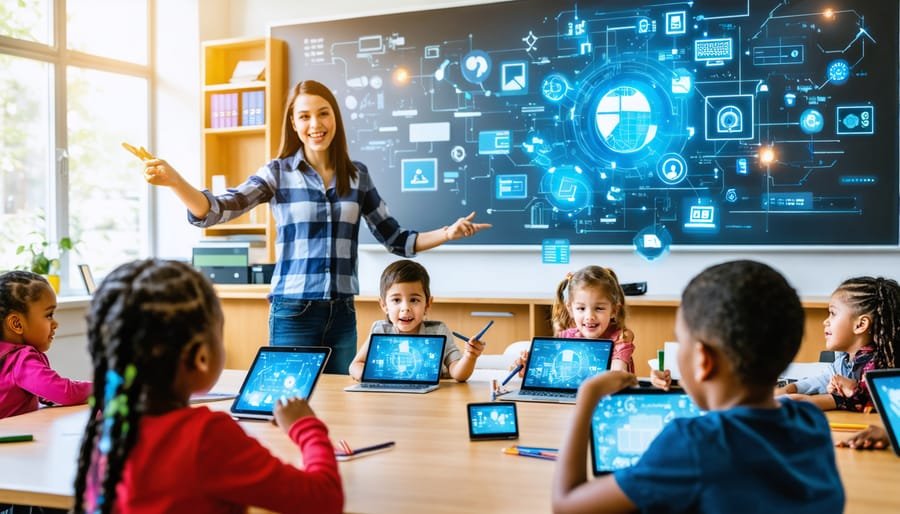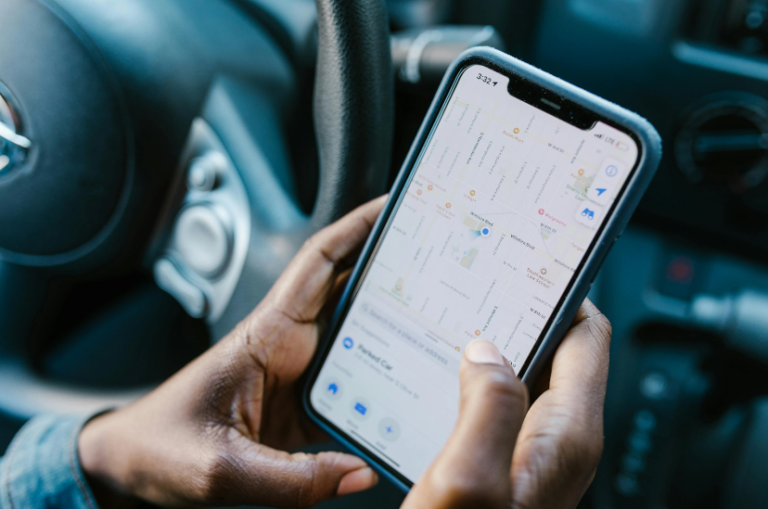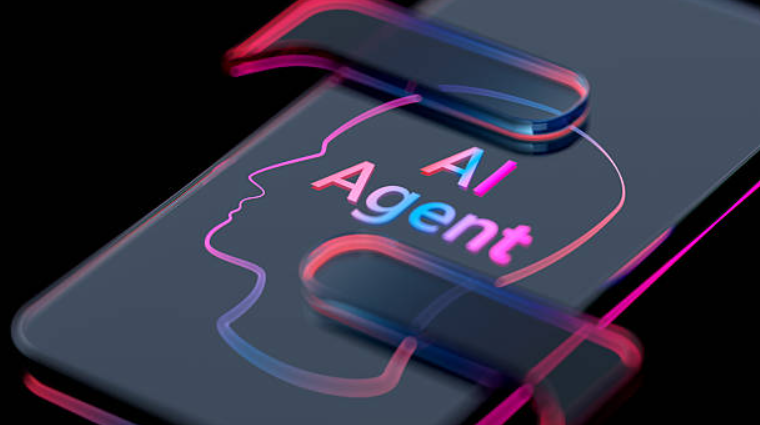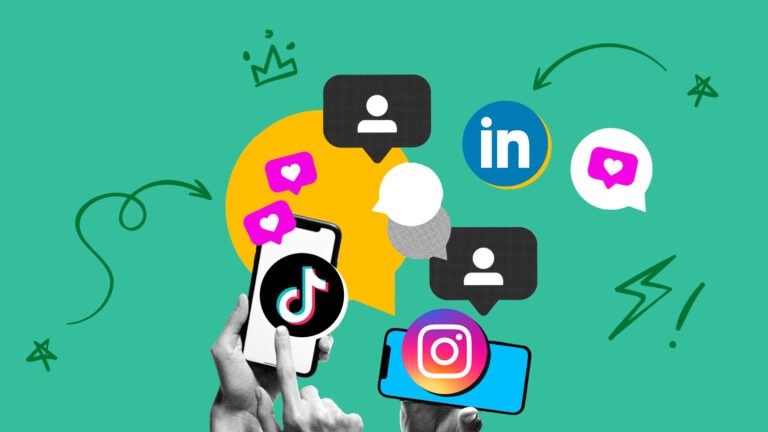Digital Literacy Skills Every Modern Educator Should Master
In today’s educational environment, developing strong digital literacy has become essential for effective teaching. The rapid evolution of tech in classrooms has transformed traditional pedagogical approaches, requiring educators to continually expand their technological competencies. Digital literacy encompasses not only basic operational skills but also the ability to critically evaluate digital resources, understand digital citizenship, and effectively integrate technology into curriculum design. Educators who develop these skills position themselves to provide more engaging, personalized learning experiences for their students.
The Evolving Definition of Educator Digital Literacy
Digital literacy for educators extends far beyond basic computer operation. Today’s digitally literate teacher must navigate an increasingly complex landscape of educational technologies, online resources, and digital communication platforms. This expanded definition includes:
- Operational fluency with diverse digital tools and platforms
- Critical evaluation of digital resources for educational value
- Understanding of data privacy and security concerns
- Ability to model appropriate digital citizenship
- Skills in troubleshooting common technology issues
These competencies collectively enable educators to leverage technology purposefully rather than simply incorporating digital tools without pedagogical rationale.
The professional development landscape has shifted accordingly, with teachers now expected to engage in continuous learning about emerging technologies. This ongoing professional growth has become essential for educators who wish to remain effective in modern learning environments where technology integration is the norm rather than the exception.
See also: The Role of Tech in E-commerce Evolution
Core Digital Competencies for Today’s Educators
Several fundamental digital skills have emerged as particularly valuable for modern teaching practice:
Cloud-Based Collaboration Tools
Proficiency with platforms like Google Workspace for Education, Microsoft Teams, and similar collaboration environments has become essential. These tools enable educators to:
- Create and share digital learning materials efficiently
- Provide real-time feedback on student work
- Facilitate collaborative projects among students
- Maintain organized digital repositories of curriculum resources
Educators comfortable with these environments can dramatically streamline administrative tasks while enhancing collaboration with colleagues and students alike.
Learning Management System Expertise
Comprehensive knowledge of institutional learning management systems (LMS) allows educators to:
- Design logically sequenced online learning experiences
- Implement varied assessment strategies
- Track student progress through data analytics
- Create blended learning environments that combine digital and traditional approaches
This expertise has proven particularly valuable during disruptions to traditional instruction, enabling more seamless transitions between in-person and remote learning models.
Strategies for Developing Educator Digital Literacy
Building digital competency requires intentional effort and strategic professional development. Several approaches have proven effective:
Personalized Professional Development Pathways
One-size-fits-all technology training rarely addresses the diverse needs of an educational faculty. More effective approaches include:
- Technology skill assessments to identify specific development needs
- Choice-based professional learning opportunities
- Micro-credentials and digital badges to recognize incremental growth
- Peer coaching programs that leverage existing faculty expertise
These personalized approaches recognize that educators begin from different starting points and may require different supports to develop digital fluency.
Creating Digital Learning Communities
Educators develop digital skills most effectively when supported by colleagues on similar journeys. Effective digital learning communities typically feature:
- Regular sharing of successful technology integration practices
- Collaborative exploration of new digital tools and resources
- Safe spaces for troubleshooting and problem-solving
- Recognition and celebration of innovative approaches
These communities can exist within individual schools or span multiple institutions through professional networks and social media connections.
Hands-On Learning Experiences
Theoretical knowledge about educational technology rarely translates to classroom practice without hands-on application. Effective professional development models include:
- Technology “sandbox” sessions where educators can experiment with new tools
- Lesson redesign workshops focused on meaningful technology integration
- Model lessons demonstrating effective digital teaching strategies
- Action research projects examining technology’s impact on student learning
These experiential approaches help educators develop not just technical skills but the pedagogical knowledge needed to leverage technology effectively.
Overcoming Barriers to Digital Literacy Development
Despite its importance, several common barriers often impede educators’ digital literacy development:
Time Constraints and Competing Priorities
Educators face numerous demands on their professional time, making technology skill development challenging. Effective solutions include:
- Embedded professional development during regular work hours
- Micro-learning opportunities that require minimal time commitment
- Technology coaches who provide just-in-time support
- Recognition of technology learning as valuable professional development
By acknowledging these time constraints and creating supportive conditions, schools can help educators prioritize digital literacy development.
Technology Resistance and Change Management
Resistance to technology adoption often stems from legitimate concerns rather than simple obstinacy. Addressing this resistance requires:
- Acknowledging and validating educators’ concerns about technology implementation
- Demonstrating clear connections between technology and improved student outcomes
- Providing differentiated support based on individual comfort levels
- Celebrating small successes in technology integration
Effective change management approaches recognize that technology adoption represents significant professional change requiring appropriate support.
Digital Literacy and Pedagogical Innovation
The most digitally literate educators leverage technology not simply to replicate traditional practices but to transform teaching and learning. This transformation includes:
Student-Centered Learning Experiences
Digital tools enable shifts toward more student-centered pedagogy through:
- Personalized learning pathways based on individual student needs
- Increased student agency and choice in demonstrating learning
- Expanded access to primary sources and authentic audiences
- Collaborative problem-solving opportunities that transcend classroom walls
Digitally literate educators can facilitate these student-centered approaches while maintaining appropriate guidance and support.
Assessment Transformation
Technology enables fundamental reconsideration of traditional assessment practices through:
- Real-time formative assessment that informs instructional decisions
- Multimodal demonstration of learning beyond traditional written formats
- Portfolio approaches that document learning over time
- Authentic assessment connected to real-world challenges and audiences
These assessment innovations provide richer evidence of student learning than traditional approaches alone.
Digital Citizenship and Ethical Technology Use
Beyond technical skills, educators must develop understanding of ethical dimensions of educational technology, including:
Modeling Appropriate Digital Behavior
Students learn digital citizenship primarily through observing adult behavior. Digitally literate educators:
- Demonstrate appropriate online communication and etiquette
- Model critical evaluation of digital information sources
- Respect intellectual property through proper attribution
- Maintain appropriate boundaries in digital communication
This modeling provides students with essential guidance for their own digital participation.
Privacy and Security Considerations
Protecting student data has become an essential aspect of educator digital literacy. Key competencies include:
- Understanding relevant student privacy laws and regulations
- Evaluating educational technology tools for privacy protections
- Implementing appropriate data security practices
- Teaching students to protect their own digital privacy
These skills help ensure that technology integration doesn’t compromise student information security.
The Future of Educator Digital Literacy
As educational technology continues its rapid evolution, educator digital literacy requirements will evolve accordingly. Several emerging trends will likely shape future digital literacy needs:
Artificial Intelligence in Education
AI-powered educational tools are increasingly entering classrooms. Future digitally literate educators will need to:
- Understand AI capabilities and limitations in educational contexts
- Evaluate AI-driven tools for bias and accuracy
- Leverage AI for administrative efficiency and personalization
- Guide students in appropriate collaboration with AI tools
This emerging field represents both tremendous opportunity and significant ethical considerations for education.
Extended Reality Technologies
As virtual reality, augmented reality, and mixed reality become more accessible, educators will need to develop:
- Ability to evaluate XR experiences for educational value
- Skills in facilitating student navigation of immersive environments
- Understanding of cognitive and physical considerations of XR use
- Capacity to design learning experiences leveraging XR affordances
These immersive technologies offer unprecedented opportunities for experiential learning when properly implemented.
Conclusion: Digital Literacy as Ongoing Professional Journey
Digital literacy for educators represents not a destination but a continuing journey of professional growth. As technologies evolve and new pedagogical possibilities emerge, even the most technologically adept educators must commit to ongoing learning and adaptation.
Educational institutions play a crucial role in supporting this journey through sustained professional development, technological infrastructure, and cultures that value innovation. By investing in educator digital literacy, schools ultimately invest in enhanced learning experiences for students who will require sophisticated digital skills for future success.
The digitally literate educator of tomorrow will blend technological fluency with pedagogical wisdom, leveraging digital tools not as ends in themselves but as powerful means to deepen learning, increase engagement, and prepare students for a rapidly evolving future.






